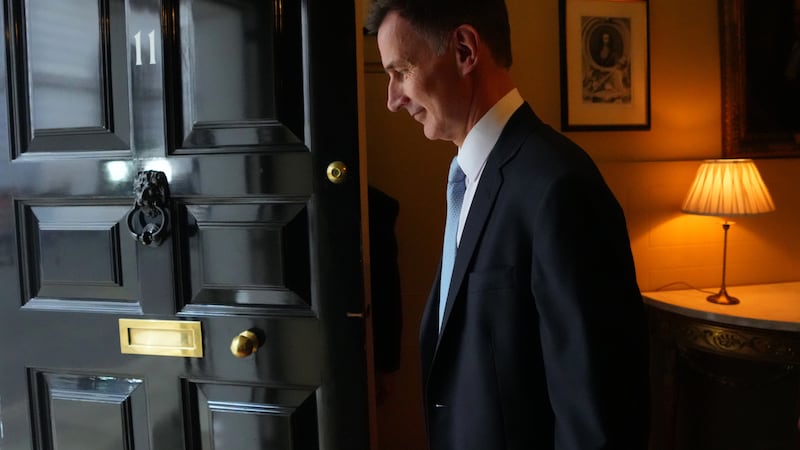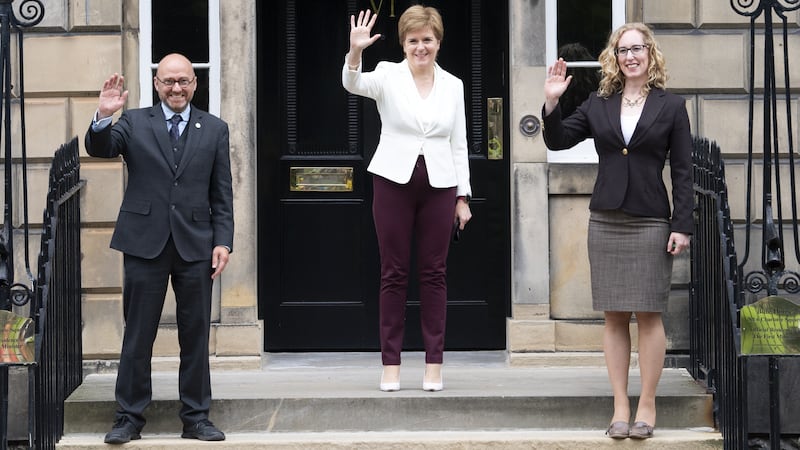The UK Government’s “provocation” tactics will not resolve the “complex” issues linked to new Irish trading arrangements, Labour has warned.
Ministers last week unilaterally extended grace periods limiting bureaucracy linked to the Northern Ireland Protocol, which governs trade post-Brexit, until October.
They had been due to expire at the end of March.
But shadow secretary of state Louise Haigh said the British government’s unilateral response meant its “words cannot be trusted” by the EU and others.
Asking an urgent question, she also told the Commons: “It raises serious questions about whether the government has a strategy at all to deal with the complex realities facing Northern Ireland.
“Provocation is not a strategy and a stop gap is not a solution.”
Ms Haigh asked the British gvernment to outline its intentions, adding: “Is it to push the Protocol to breaking point and undermine the cast-iron commitment to avoid a hard border on the island of Ireland, or is it to find the solutions that businesses are crying out for?”
She also said: “This is an extraordinary position for a government to be in – having to break the law and trash Britain’s international reputation to remove checks they claimed never existed.”
Secretary of State Brandon Lewis defended the British government’s “lawful” actions.
He said: “She didn’t, from memory, at any point disagree with the substance of any of the measures we put forward, which are critical to protecting the flow of goods in Northern Ireland, so I assume she does inherently support what we’ve done.”
Mr Lewis said the British government’s actions have been backed by a “range of businesses and the communities” in Northern Ireland, adding: “If we had not taken this action last week, we’d have seen disruption to food supplies in literally the next couple of weeks.”
He added the measures are “consistent with a progressive and good faith implementation” of the Protocol, and do not change the UK’s legal obligations, with discussions continuing with the EU.
Simon Hoare, Conservative chairman of the Northern Ireland Affairs Committee, asked whether the Government “understands the very destabilising effect on trust that such unilateral action brings on both UK-EU relations and on UK-Irish relations”.
He said: “Can I urge the government to desist from a narrative of unilateral action and debate, get round the joint committee table and make sure that the protocol works, that everybody understands that it’s here to stay and that it can benefit very significantly the people, the economy and communities of Northern Ireland?”
The DUP’s Westminster leader Sir Jeffrey Donaldson said: “What we need is a permanent solution to this problem, and frankly the sooner the better.”
Labour former minister Hilary Benn asked under which Article of the Northern Ireland Protocol the British government has taken the action that it has.
He told the Commons: “I support the aim of trying to minimise unnecessary disruptive checks, but on the method, can the minister tell the House under which Article of the Northern Ireland Protocol the Government has taken this decision, which he describes as lawful, to extend the grace period?
“Is it Article 16, which allows the UK to unilaterally take appropriate safeguard measures, and if not, which other article is he citing as giving the government the ability lawfully to take this step?”
Mr Lewis, in his reply, said: “The measures I announced last Wednesday are lawful and consistent with the progressive and good faith implementation of the protocol.
“They are temporary operational easements, introduced where additional delivery time is needed; they do not change our legal obligations as set out in the protocol.”








